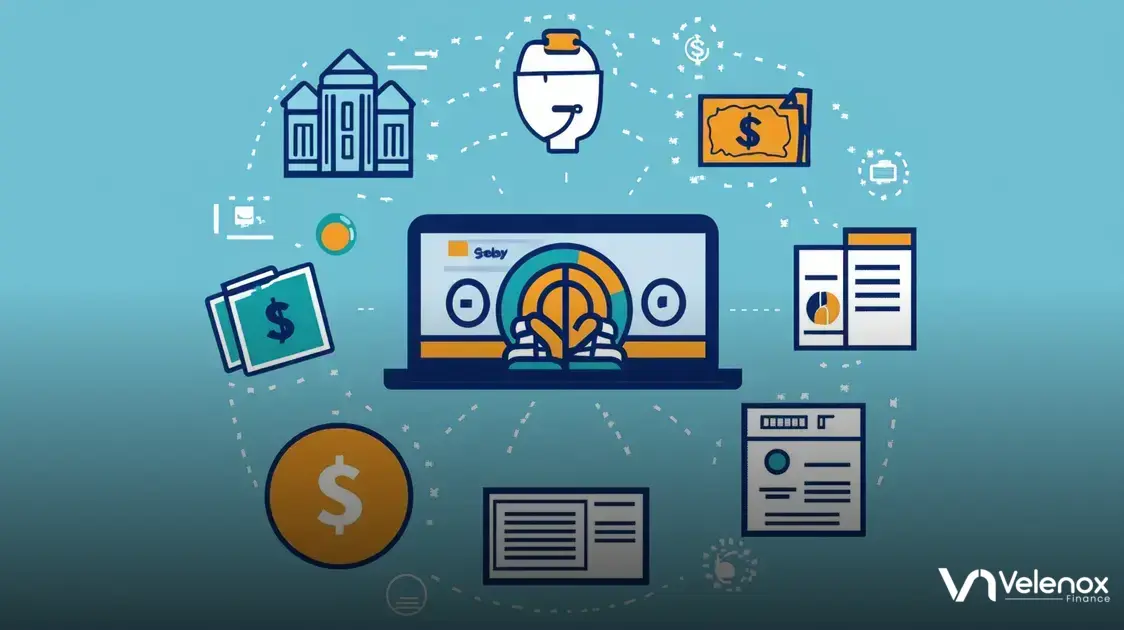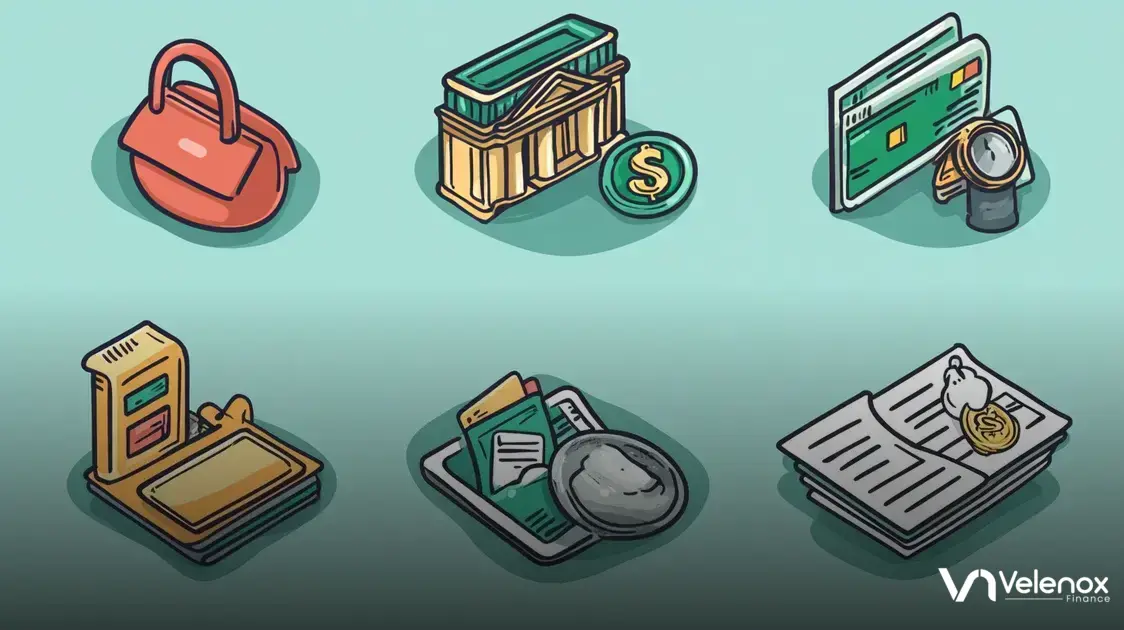Payday loans are a popular choice for many seeking immediate financial assistance.
They provide quick access to cash, often making them an appealing option in times of financial distress.
However, with their convenience come significant risks that borrowers must understand.
What Are Payday Loans?
Payday loans are short-term, high-interest loans designed to provide quick cash to individuals in need of immediate financial assistance.
These loans are generally small amounts, typically ranging from $100 to $1,000, and are meant to be repaid within a short period, often by the borrower’s next paycheck.
How Payday Loans Work
When someone applies for a payday loan, they usually provide a check or authorization for the lender to electronically withdraw the loan amount plus fees on the due date.
This helps lenders secure repayment directly from the borrower’s bank account.
Who Uses Payday Loans?
Payday loans are often sought by individuals who might not have access to traditional credit options or need urgent cash to cover unexpected expenses, such as medical bills, car repairs or utility bills.
They are especially popular among those who have bad credit or no credit history.
Pros and Cons
While payday loans can provide much-needed funds quickly, they also come with high interest rates and fees that can lead to a cycle of debt if not managed properly.
Borrowers must understand these terms before proceeding.
In summary, payday loans can serve as a quick solution for urgent financial needs, but it’s crucial for borrowers to weigh their options and understand the associated risks.
How Do Payday Loans Work?
Payday loans operate on a simple mechanism where borrowers can quickly access cash by using future earnings as collateral.
The process generally starts with a loan application, which can often be completed online or in-store.
Step 1: Application
When applying for a payday loan, individuals will need to provide personal information, including their income, employment details, and a valid identification.
Lenders may also require a checking account to facilitate transactions.
Step 2: Approval Process
Once the application is submitted, lenders typically approve loans within minutes.
Because payday loans are generally unsecured, lenders do not perform extensive credit checks, making it accessible for those with poor or no credit.
Step 3: Loan Terms
The terms of payday loans vary by lender. Borrowers are informed of the total amount to be repaid, which includes the principal plus any fees or interest.
This amount is usually due on the borrower’s next payday.
Step 4: Receiving Funds
After approval, the lender deposits the loan amount directly into the borrower’s checking account.
This process is fast, allowing users to access funds almost immediately for emergencies or urgent needs.
Step 5: Repayment
Repayment occurs automatically on the agreed-upon date, where lenders will withdraw the total amount owed from the borrower’s account.
If a borrower cannot repay on time, they may incur additional fees, leading to potential cycles of debt.
Understanding how payday loans work is essential for anyone considering this option for quick cash.
By knowing the steps and responsibilities involved, borrowers can make informed decisions.
Advantages of Payday Loans

Payday loans offer several advantages for those in need of quick cash. Understanding these benefits can help individuals decide if this option is right for them.
Quick Access to Funds
One of the biggest advantages of payday loans is the rapid access to cash.
Lenders usually provide funds within one business day, allowing borrowers to meet urgent financial needs swiftly.
No Extensive Credit Checks
Payday loans are typically available to individuals with poor credit or no credit history.
Most lenders do not perform extensive credit checks, making it easier for individuals to qualify.
Simplicity of Application
The application process for payday loans is straightforward.
Borrowers can apply online or in-person with minimal paperwork. This convenience is another attractive feature.
Flexibility in Use
Borrowers can use payday loans for various purposes, including medical emergencies, car repairs, or unexpected bills.
This flexibility makes payday loans a suitable option for different situations.
Potential for Building Credit
If borrowers repay their payday loans on time, they may improve their credit score. Some lenders report positive payment histories to credit bureaus, helping individuals build their credit profile.
Short-Term Commitment
Payday loans are intended to be short-term solutions.
Most loans must be repaid within two to four weeks, reducing the long-term financial burden compared to traditional loans.
Easy Renewal Options
Many payday loan lenders offer easy renewal or extension options.
This feature allows borrowers to extend the repayment date if they need more time, though it may come with additional fees.
These advantages make payday loans appealing for many people looking for quick financial solutions.
However, it’s essential to consider all aspects, including potential risks.
Disadvantages of Payday Loans
While payday loans offer quick access to cash, they come with several disadvantages that borrowers should be aware of.
Understanding these drawbacks is essential for making informed financial decisions.
High Interest Rates
One of the main disadvantages of payday loans is their exorbitant interest rates.
Lenders often charge fees that can translate into annual percentage rates (APRs) of 400% or more, making these loans very expensive.
Short Repayment Terms
Payday loans are typically due on the borrower’s next payday, usually within two to four weeks.
This short repayment period can create financial stress, especially if the borrower does not have enough funds to cover the loan when it is due.
Risk of Debt Cycle
If borrowers are unable to repay their payday loans on time, they may need to take out new loans to cover the payments.
This can lead to a cycle of debt that is difficult to escape, causing financial hardship over time.
Lack of Regulation
Payday lending is often less regulated than traditional banking.
Some lenders may engage in predatory practices, such as charging excessive fees or not fully disclosing the terms of the loan, putting borrowers at risk.
Negative Impact on Credit Score
Although payday lenders do not typically check credit scores, failing to repay a loan can lead to collections, harming the borrower’s credit score.
This can make it harder to obtain loans in the future.
Sense of Urgency
The quick nature of payday loans can create a sense of urgency that pressures individuals into borrowing without fully assessing their financial situation.
This can result in making hasty decisions they may later regret.
Being aware of these disadvantages can help borrowers decide whether payday loans are a suitable option for their financial needs.
Who Should Consider Payday Loans?
Certain individuals may find payday loans to be a beneficial option for their financial circumstances.
It is essential to identify who might consider using these loans.
Those Facing Emergency Expenses
People who encounter unexpected expenses, such as medical bills, car repairs, or urgent home repairs, may find payday loans a useful solution.
These loans provide quick access to cash when time is of the essence.
Individuals with No Access to Traditional Credit
Those with poor credit histories or no credit at all may struggle to secure traditional loans.
Payday loans can offer these individuals a way to obtain necessary funds without extensive credit checks.
Temporary Financial Gaps
People who are temporarily short on cash between paychecks can benefit from payday loans.
These loans help bridge the gap until the next paycheck arrives, providing relief during tight financial times.
Individuals Who Can Repay Promptly
Those who have a clear plan to repay the loan on time should consider payday loans.
Having a stable income helps ensure that the borrower can pay back the loan without accumulating additional fees.
Borrowers Who Understand the Risks
People who are fully aware of the risks involved with payday loans and have considered the costs are better positioned to use them responsibly.
Understanding the high-interest rates and repayment terms is crucial.
Ultimately, payday loans can serve as a quick financial solution for the right individuals, especially during emergencies or unexpected financial pinches.
Alternatives to Payday Loans

If payday loans don’t seem like the right option for you, several alternatives can provide financial assistance without the high risks.
Understanding these alternatives can help you make informed decisions.
Personal Loans
Traditional personal loans often offer lower interest rates compared to payday loans.
These loans can be obtained from banks, credit unions, or online lenders and typically provide more time for repayment.
Credit Cards
If you have a credit card, you might consider using it for emergency expenses.
Credit cards usually have lower interest rates than payday loans, but it’s essential to pay off the balance quickly to avoid accumulating debt.
Borrowing from Friends or Family
Another option is to borrow money from friends or family. This approach can offer more flexibility in repayment terms and often comes with no interest.
However, it’s crucial to communicate openly to avoid straining relationships.
Credit Counseling Services
Nonprofit credit counseling services can help individuals manage their finances.
They can provide advice on budgeting, negotiating with creditors, and developing a plan to avoid payday loans in the future.
Installment Loans
Installment loans have fixed payments over a longer term, making them more manageable.
Many lenders offer these loans with lower rates than payday loans, and they can be a better choice for larger expenses.
Paycheck Advances
Some employers offer paycheck advances, allowing employees to access a portion of their wages before payday.
This option usually has no fees or interest, making it a cost-effective alternative.
Exploring these alternatives can help borrowers avoid payday loans while still meeting their financial needs effectively.
How to Apply for a Payday Loan
Applying for a payday loan is a relatively straightforward process.
By following a few simple steps, individuals can secure the funds they need quickly.
Step 1: Research Lenders
Start by researching different payday loan lenders. Look for reputable companies with transparent terms and conditions.
Read reviews to ensure that they have a good track record.
Step 2: Check Eligibility
Ensure that you meet the eligibility requirements.
Most lenders require you to be at least 18 years old, have a steady source of income, and possess a valid ID.
Step 3: Gather Necessary Documents
Before applying, gather the required documents.
This often includes proof of income (like pay stubs), identification (such as a driver’s license), and banking information.
Step 4: Fill Out the Application
Go to the lender’s website or physical location and fill out the application form.
Provide accurate information and double-check for errors to avoid delays.
Step 5: Review Loan Terms
Carefully review the loan terms before accepting the offer. Be sure to understand the interest rates, fees, and repayment schedule.
This helps prevent any surprises later on.
Step 6: Receive Funds
If approved, the lender will either deposit the funds directly into your bank account or provide cash on the spot, depending on how you applied.
Step 7: Plan for Repayment
After receiving your payday loan, make a plan for repayment.
Mark your due date on a calendar and ensure you have sufficient funds in your account to cover the payment.
Following these steps can help streamline the payday loan application process and make it easier to acquire the funds you need in a timely manner.
Tips for Responsible Borrowing
When it comes to utilizing payday loans, responsible borrowing is key.
By following these tips, borrowers can manage their loans effectively and avoid falling into financial trouble.
Understand the Loan Terms
Before taking out a payday loan, carefully read and understand the terms and conditions.
Know the interest rates, repayment schedule, and any additional fees involved. Being informed helps you make better decisions.
Borrow Only What You Need
Only borrow the amount you truly need to cover your expenses.
Avoid the temptation to take out a larger loan than necessary, as this increases the amount due later and can lead to more debt.
Create a Repayment Plan
Have a clear plan for how you will repay the loan on time.
Create a budget that accommodates the repayment amount, ensuring that funds are available when the payment date arrives.
Avoid Renewing the Loan
If possible, avoid renewing or rolling over the payday loan.
This can lead to extra fees and further debt, making it harder to manage your finances. Try to pay off the loan within the original timeframe.
Reach Out for Help if Needed
If you find it difficult to repay your loan, communicate with your lender. Some lenders may offer options such as payment extensions or alternative repayment plans.
It’s better to seek assistance than to ignore the problem.
Consider Alternatives
Before applying for a payday loan, explore other financial options such as personal loans, credit cards, or community assistance programs.
These alternatives may offer more favorable terms and less risk.
By incorporating these tips into your borrowing strategy, you can use payday loans more responsibly and minimize the chances of falling into debt.
Understanding Payday Loans: A Careful Approach
Loans can provide a quick cash solution for emergencies, offering advantages such as fast access to funds and the ability to obtain money without extensive credit checks.
However, it’s crucial to recognize the disadvantages, including high-interest rates and short repayment terms.
Before considering a payday loan, evaluate your financial situation, explore alternatives, and ensure you fully understand the terms and conditions.
Responsible borrowing is vital; create a repayment plan, borrow only what you need, and seek help if you encounter difficulties.
By making informed decisions and practicing responsible borrowing, individuals can utilize loans effectively while minimizing potential financial pitfalls.





